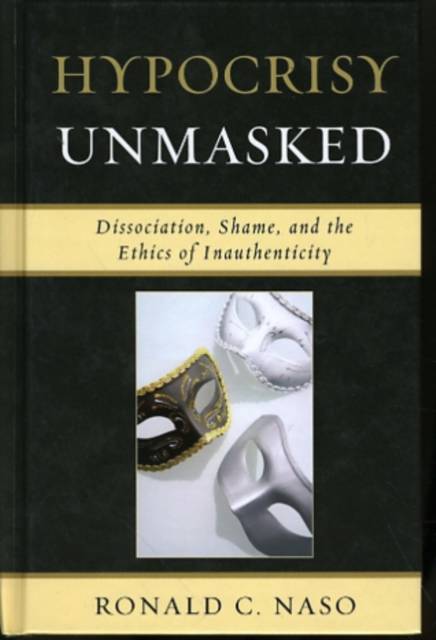
- Afhalen na 1 uur in een winkel met voorraad
- Gratis thuislevering in België vanaf € 30
- Ruim aanbod met 7 miljoen producten
- Afhalen na 1 uur in een winkel met voorraad
- Gratis thuislevering in België vanaf € 30
- Ruim aanbod met 7 miljoen producten
Zoeken
€ 210,45
+ 420 punten
Omschrijving
Hypocrisy Unmasked explores the motives, meanings, and mechanisms of hypocrisy, challenging two principal psychoanalytic assumptions: First, that hypocrisy expresses deviant, uncontrollable impulses or follows exclusively from superego weakness; and second, that it can be understood solely in terms of intrapsychic factors without reference to the influences of the field. Ronald C. Naso argues that each of these assumptions devolve into criticisms rather than explanations and demonstrates that hypocrisy represents a compromise among intrapsychic, interpersonal, situational, and cultural/linguistic forces in an individual life. Hypocrisy Unmasked accords a healthy respect to the hypocrite's existentiality, including variables like opportunity and chance, and focuses on situations where the hypocrite's desires differ from those of others and on the moral principles that count in decision-making rather than how they are subsequently rationalized. Ultimately, hypocrisy exposes the ineradicable moral ambiguity of the human condition and the irreconcilability of desires and obligations.
Specificaties
Betrokkenen
- Auteur(s):
- Uitgeverij:
Inhoud
- Aantal bladzijden:
- 236
- Taal:
- Engels
- Reeks:
Eigenschappen
- Productcode (EAN):
- 9780765706775
- Verschijningsdatum:
- 16/04/2010
- Uitvoering:
- Hardcover
- Formaat:
- Ongenaaid / garenloos gebonden
- Afmetingen:
- 155 mm x 229 mm
- Gewicht:
- 498 g

Alleen bij Standaard Boekhandel
+ 420 punten op je klantenkaart van Standaard Boekhandel
Beoordelingen
We publiceren alleen reviews die voldoen aan de voorwaarden voor reviews. Bekijk onze voorwaarden voor reviews.











